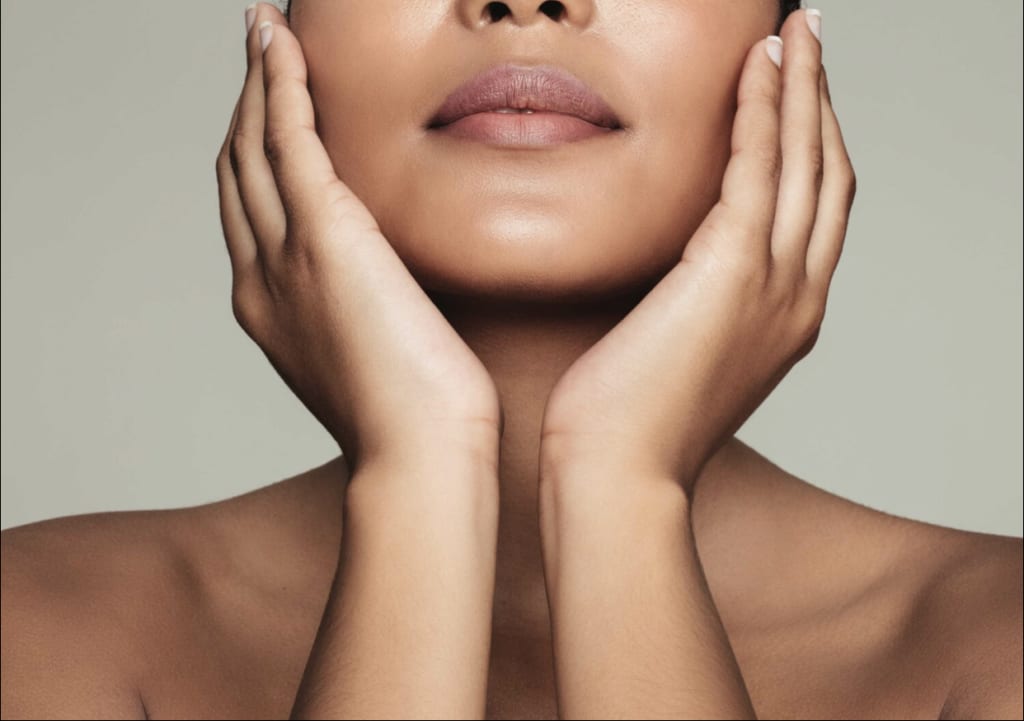THE SKIN
Major Skin Conditions and Skin Care

The skin, which is the biggest organ in the human body, is crucial in defending the body against dangers including UV radiation, pollutants, and infections. However, there are a number of disorders that can affect the skin's health, function, and appearance:
Below are some of the main conditions affecting the skin:
1. Acne: is a common skin ailment that develops when oil and dead skin cells clog hair follicles. Although it can happen at any age, it is most frequently encountered in adolescents and young adults. Mild to severe acne can leave scars and cause emotional distress.
2. Eczema: is a persistent ailment that results in swelling, itching, and redness of the skin. It can appear on any part of the body and is commonly found in areas such as the elbows, feet, knees, and hands. Eczema is often caused by allergens or irritants, and it can be exacerbated by stress.
3. Psoriasis: is a chronic autoimmune condition that causes the rapid growth of skin cells. This results in thick and scaly patches,that are often painful and itchy. It can affect anywhere on the body, but it commonly found on the knees, elbows, and scalp.
4. Rosacea: is a chronic skin condition that causes redness, flushing, and bumps on the face. It is mostly observed in people aged above 30, and can be worsened by triggers such as alcohol, spicy foods, and stress.
5. Dermatitis: is a general term for "inflammation" of the skin. It is caused by different factors, including allergens, irritants and infections. It's symptoms can be redness, itching, blisters and/or oozing.
6. Skin Cancer: It occurs when skin cells are damaged by UV radiation from the sun or tanning beds. The three main types of skin cancer are melanoma, basal cell carcinoma and squamous cell carcinoma.
7. Hives: It is also known as urticaria. They are itchy and can appear anywhere on the body. They are often caused by allergic reactions to food, medication, or insect bites. Hives can be acute or chronic. They can last for a few hours to several weeks.
8. Vitiligo: is a skin condition that causes the loss of pigmentation in the skin, hence resulting in white patches. It is caused by the destruction of melanocytes, the cells that produce melanin. Vitiligo can occur anywhere on the body and can be worsened by stress.
9. Fungal Infections: Fungal infections of the skin are common and can cause a variety of symptoms: redness, itching, and scaling. Some of the common fungal infections are athlete's foot, jock itch and ringworm.
10. Warts: are caused by a viral infection and they can appear anywhere on the body. They are typically small, rough growths that can be flesh-colored/darker. Warts are contagious and can be spread through contact with the skin.
SKIN CARE
Skin care ought to be part of our daily routine that helps keep the skin healthy, hydrated, and protected from environmental factors such as the sun, pollution, and harsh chemicals. Good skin care practices can help prevent premature aging, reduce the appearance of fine lines and wrinkles, and improve the overall texture and tone of the skin. I have outlined some of the skin care tips for maintaining a healthy skin:
a) Cleansing: The first step in any skincare routine is cleansing. Cleansing helps to remove dirt, oil, and makeup from the skin, and unclog pores. It is important to choose a gentle cleanser that is appropriate for your skin type. Those with oily skin may benefit from a foaming or gel-based cleanser, while those with dry skin may prefer a cream or lotion cleanser.
b) Exfoliation: Exfoliation helps to remove dead skin cells from the surface of the skin, which can make it appear dull and rough. Exfoliating once or twice a week can help improve the texture and tone of the skin. There are many different types of exfoliators available, including physical exfoliators such as scrubs, and chemical exfoliators such as alpha-hydroxy acids (AHAs) and beta-hydroxy acids (BHAs).
c) Moisturising: Moisturizing is an essential step in any skincare routine, as it helps to hydrate the skin and prevent dryness and flakiness. It is important to choose a moisturizer that is appropriate for your skin type. Those with oily skin may prefer a lightweight, oil-free moisturizer, while those with dry skin may benefit from a heavier, more hydrating moisturizer.
d) Sun protection: Sun protection is essential for maintaining healthy skin, as exposure to the sun can cause premature aging, sunburn, and even skin cancer. It is important to use a sunscreen with an SPF of at least 30, and to reapply it every two hours when spending time outdoors. It is also important to wear protective clothing, such as hats and long sleeves, and to seek shade during the hottest parts of the day.
e) Hydration: Drinking plenty of water is essential for maintaining healthy skin, as it helps to hydrate the skin from the inside out. It is recommended to drink at least eight glasses of water per day, and to avoid sugary drinks and caffeine, which can dehydrate the skin.
f) Diet: A healthy diet rich in fruits, vegetables, and lean protein can help to promote healthy skin. Foods that are high in antioxidants, such as berries and leafy greens, can help to protect the skin from environmental damage. It is also important to avoid foods that can cause inflammation, such as processed foods and sugary drinks.
Maintaining healthy skin requires a combination of good skincare practices, sun protection, hydration, and a healthy diet. By following these steps, you can help to keep your skin looking and feeling healthy and youthful for years to come.
Remember to choose products that are appropriate for your skin type, and to consult with a dermatologist or skin care therapist if you have any concerns about your skin.
There are many conditions that can affect the skin, ranging from mild to severe. Some conditions are caused by external factors such as UV radiation and irritants, while others are caused by internal factors such as autoimmune disorders. Understanding the causes and symptoms of these conditions is essential for proper diagnosis and treatment. If you are experiencing any skin issues, it is always best to consult with a dermatologist for proper evaluation and treatment.
Yours truly,
Al Rauf Okal
About the Creator
Al Rauf Okal
Do you love your body? I am an enthusiast of healthy living. I’ll be sharing on ways of living healthy. We got to enjoy life and make the best out of it. Make a point to subscribe, support and give reviews.






Comments
There are no comments for this story
Be the first to respond and start the conversation.